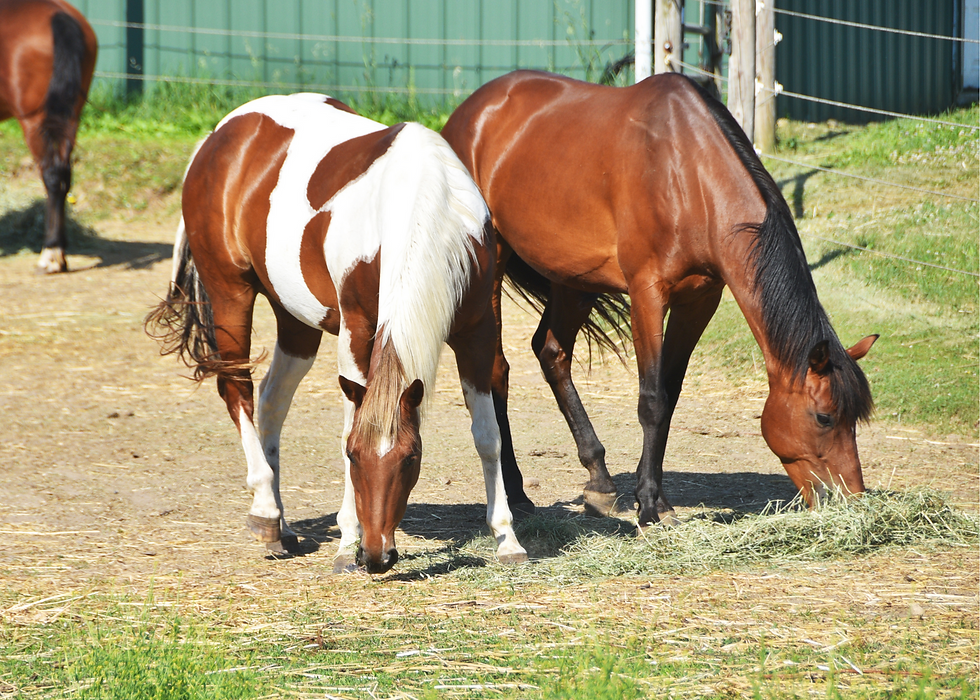When it comes to maintaining the health and condition of ‘hard keepers’, selecting the best feed is crucial. ‘Hard keepers’ are horses that struggle to maintain weight despite being fed adequately. These horses often require special care and attention to their diet to ensure they are receiving all the necessary nutrients for optimal health. In this article, we will delve into the best dietary strategies and feed options for these horses.

Understanding Hard Keepers
‘Hard keepers’ often have a faster metabolism or other underlying health issues that prevent them from gaining weight easily. Identifying these horses early and providing them with the right nutrition can make a significant difference in their overall health and performance.
Characteristics of Hard Keepers
‘Hard keepers’ might have a thin appearance, visible ribs, and a lack of body fat. It’s important to recognize these signs early and adjust their diet accordingly to prevent any health issues.
Importance of a Balanced Diet
A balanced diet is essential for all horses, but it’s particularly important for ‘hard keepers’. A diet rich in calories, proteins, and essential nutrients can help in maintaining their weight and supporting their overall health.
Caloric Intake
The caloric intake for ‘hard keepers’ needs to be higher than average. This can be achieved by providing calorie-dense feeds such as high-quality hay and grains.
Protein and Fat
Proteins and fats are essential components of a ‘hard keeper’s’ diet. Protein supports muscle development, while fats provide a concentrated energy source. Consider supplementing their diet with corn oil for added calories.
Choosing the Right Feed
Choosing the best feed for hard keepers involves selecting products that are specifically designed to meet their unique nutritional needs.
High-Quality Forage
Forage should be the foundation of any horse’s diet. High-quality hay or pasture provides essential fiber and nutrients. It’s important to ensure the forage is free of dust and mold.
Concentrated Feeds
Concentrated feeds are a great way to provide additional calories. Look for feeds that are high in fat and fiber but low in starch to prevent digestive issues.
Supplements
Adding supplements to a ‘hard keeper’s’ diet can help fill nutritional gaps. Supplements like magnesium can aid in muscle function and energy metabolism.
Monitoring Health and Weight
Regularly monitoring the health and weight of ‘hard keepers’ is essential. This allows for timely adjustments to their diet and ensures they are on the right track.
Regular Weigh-Ins
Conduct regular weigh-ins to track progress and make necessary adjustments to their diet.
Health Check-Ups
Regular veterinary check-ups can help identify any underlying health issues that may be affecting the horse’s ability to gain weight.
Common Challenges and Solutions
Feeding ‘hard keepers’ comes with its own set of challenges. However, with the right approach, these challenges can be effectively managed.
Digestive Issues
‘Hard keepers’ may experience digestive issues due to their unique dietary needs. Ensuring a diet low in starch and high in fiber can help mitigate these issues.
Stress Management
Stress can significantly impact a horse’s weight and overall health. Providing a calm and stress-free environment can aid in better digestion and weight gain.
Conclusion
Finding the best feed for hard keepers involves understanding their unique nutritional needs and providing a balanced diet rich in calories, proteins, and essential nutrients. By carefully selecting the right feed and supplements, and regularly monitoring their health, you can ensure your ‘hard keeper’ maintains a healthy weight and thrives.

FAQs
What is a hard keeper?
A ‘hard keeper’ is a horse that has difficulty maintaining weight despite adequate feeding.
Why is a balanced diet important for hard keepers?
A balanced diet is crucial for ‘hard keepers’ to ensure they receive all necessary nutrients for weight maintenance and overall health.
How can I monitor my horse’s weight effectively?
Regular weigh-ins and veterinary check-ups are effective ways to monitor your horse’s weight and make necessary dietary adjustments.
For more detailed information on horse nutrition, visit Redmond Equine.
This article contains affiliate links. We may earn a commission at no extra cost to you.
